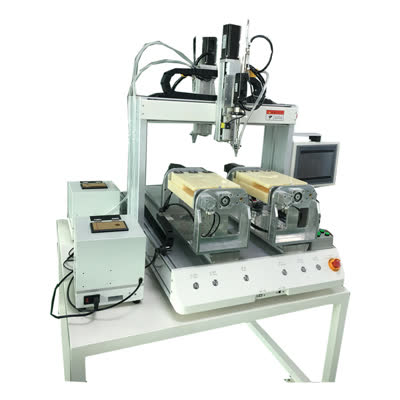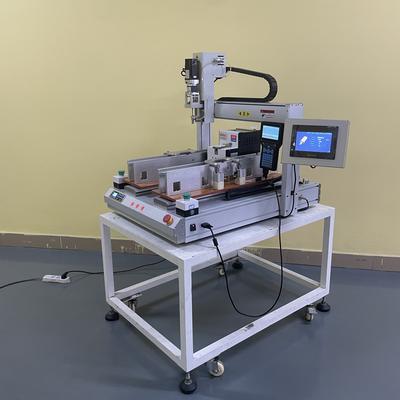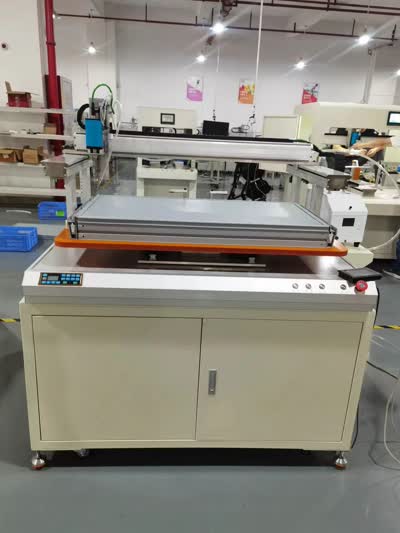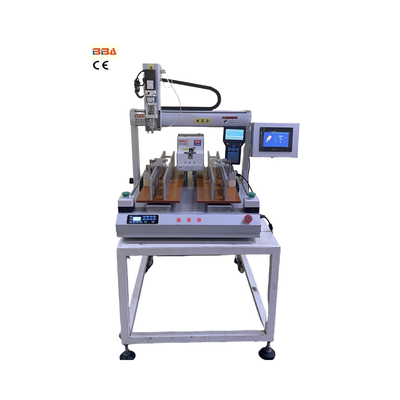Robotic Screw Machines in Medical Device Manufacturing | Precision Assembly
Use of Robotic Screw Machines in Medical Device Production
The medical device industry demands unparalleled precision and reliability. From surgical instruments to implantable technologies, microscopic inconsistencies can compromise patient safety and device efficacy. As production volumes surge globally, robotic screw machines have emerged as transformative solutions in manufacturing facilities, ensuring the micrometer-level accuracy required in life-critical applications.
Uncompromising Precision and Repeatability stand at the core of robotic screwdriving systems. These machines perform repetitive fastening tasks with force and torque control accurate to fractions of a newton-meter—far exceeding human capabilities. Whether securing delicate sensors in diagnostic equipment or assembling titanium components for orthopedic implants, each fastener is applied identically. This eliminates variations caused by operator fatigue or technique differences, directly enhancing product quality and reducing failure risks during sterilization or clinical use.
Sterility requirements make Contamination Control paramount. Robotic systems minimize human contact with components in cleanroom environments. Automated screwdriving cells often integrate seamlessly with HEPA-filtered enclosures, continuously executing tasks in ISO Class 5-7 environments. Reduced personnel movement lowers particulate generation while touchless operation prevents biological contaminants from compromising sensitive assemblies like catheters or blood filtration devices. Automated logging of torque data per screw also creates immutable quality records, essential for regulatory audits per ISO 13485 and FDA 21 CFR Part 11.
Applications span the entire medical spectrum: suturing devices require hundreds of micro-screws assembled under microscopes; robotic arms deftly handle M1.2 fasteners in hearing aid manufacturing; SCARA systems install shielded screws in MRI machine components where magnetic interference must be avoided. High-speed spindles and vision-guided robotics adapt to diverse part geometries—from angulated dental drill handpieces to irregularly shaped prosthetics—without retooling delays.
The operational advantages are measurable. Production lines utilizing robotic screwdriving report 30-50% throughput increases while achieving near-zero defect rates in fastener-dependent validation tests. Ergonomic injuries from manual screwdriving disappear, and reassignment of technicians to value-added tasks optimizes labor costs. One neurostimulator manufacturer reduced assembly errors by 98% after implementing torque-controlled robots with error-proofing sensors that halt processes if components misalign.
Future innovations focus on AI-driven predictive quality. Machine learning algorithms analyze real-time torque curves to detect subtle anomalies—like stripped threads or cross-threading—before defects manifest. Collaborative robots (cobots) are increasingly deployed for smaller batch productions, working alongside technicians while maintaining sterile zones. System integrations now incorporate closed-loop calibration, where screwdrivers self-adjust based on in-line measurement feedback of joint tightness.
As medical devices grow more complex and regulatory scrutiny intensifies, robotic screwdriving technology provides the foundation for scalable, audit-ready manufacturing. These systems transcend mere automation—they deliver the deterministic precision that transforms engineering blueprints into trusted medical innovations, ensuring every fastener safeguards patient outcomes. The convergence of robotics and medical manufacturing continues to redefine excellence in life-sustaining technology.

| Product Name | Applicable industries |
| Servo Screwdriver Robot | Telecommunication Equipment Assembly |


